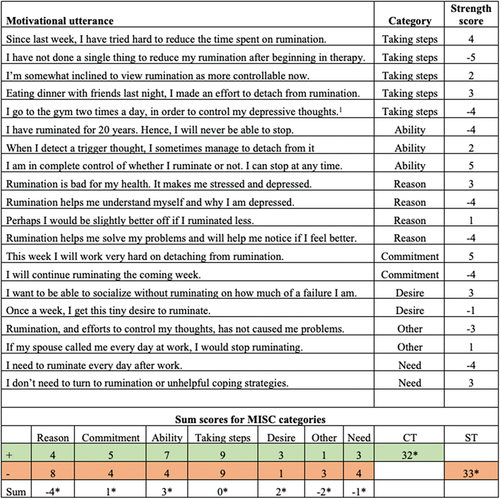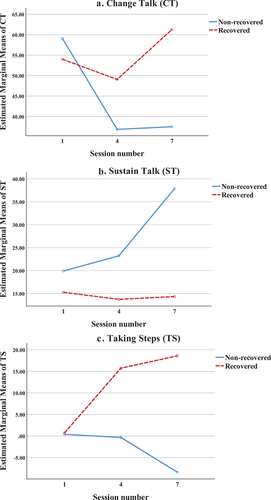Figures & data
Figure 1. Illustration of the utilized coding system (MISC 2.5; Houck et al., Citation2011). CT and ST scores were summed for each category, as displayed. CT: change talk; ST: sustain talk; +: CT; −: ST. *The variables included in analyses. 1use of distraction and thought control, which are considered components of the cognitive attentional syndrome in MCT for depression.

Table 1. Sample demographic and diagnostic characteristics at pre-treatment (N = 37).
Table 2. Descriptive statistics (N = 37).
Table 3. Predicting depressive symptoms at 3-year follow-up using motivation and adherence (N = 37).
Figure 2. Graphs of estimated marginal means of motivational utterances in sessions 1, 4, and 7 for recovered and non-recovered patients. Dependent variable: MISC strength-scores.

Supplemental Material
Download MS Word (35.7 KB)Data availability statement
The data that support the findings of this study are available from the corresponding author, ERL, upon reasonable request.
